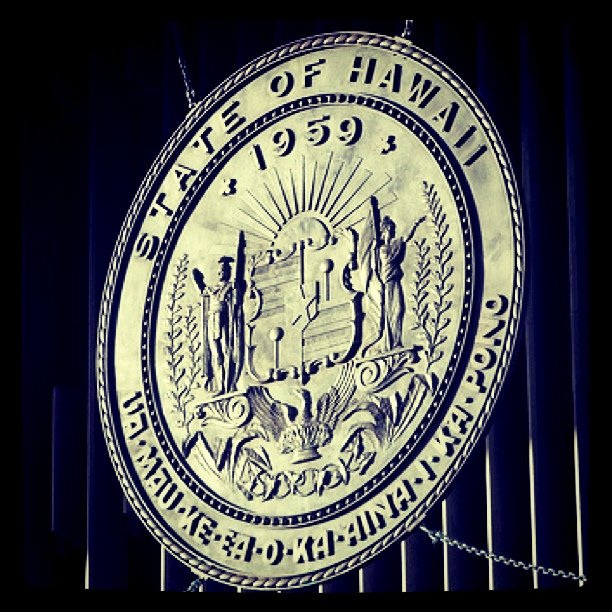Over on Hawaii Reporter (which I swear doesn’t do anything to get all these mentions here except produce a broader and more fearless variety of opinions than the vast majority of other Hawaii news sources), Ken Conklin has an interesting take on the most recent effort of the Hawaii Legislature to rewrite history. The article is worth reading in its entirety (not least of all for the impassioned discussion of the ultimate effect of these endless muddled legislative exercises in pandering), but here are the highlights:
House Concurrent Resolution 107 (HCR107) in the Hawaii legislature would establish “a joint legislative investigating committee to investigate the status of two executive agreements entered into in 1893 between United States President Grover Cleveland and Queen Liliuokalani of the Hawaiian Kingdom, called the Liliuokalani assignment and the agreement of restoration.â€
The investigating committee would be empowered to “Issue subpoenas requiring the attendance and testimony of the witnesses and subpoenas duces tecum requiring the production of books, documents, records, papers, or other evidence in any matter pending before the joint investigating committee; … Administer oaths and affirmations to witnesses at hearings of the joint investigating committee; Report or certify instances of contempt as provided in section 21—14, Hawaii Revised Statutes …â€
….
The purpose of such an investigation is not merely to do academic research on an obscure historical question from 118 years ago. The purposes are to claim that the U.S. had an obligation to restore Liliuokalani to the throne; and to claim that the obligation of the President of the United States continues to this day to restore the Kingdom of Hawaii to its former status as an independent nation.
Throughout my nineteen years in Hawaii I have seen the legislature repeatedly pass bills and resolutions encouraging some sort of race-based Hawaiian political entity, or sovereign independence. Year after year: Let’s pay for an election of delegates to a Native Hawaiian convention, and years of their travel expenses for meetings, so they can choose the tribal concept or write a constitution for an independent nation; let’s pass a resolution in 2002 asking the United Nations to investigate the legitimacy of Hawaii’s admission to statehood in 1959; let’s support the Akaka bill in Congress; let’s proclaim April 30 of every year a permanent holiday called “Hawaiian Restoration Dayâ€; let’s create a state-recognized tribe with a state-only version of the Akaka bill; let’s transfer $200 Million in land or money to OHA; etc. etc. ad nauseum.
Why? All these legislative actions have accomplished is to stir up racial animosity, feelings of entitlement, etc. Hopes are raised for some people who want land and money from the rest of us, and then those hopes come crashing down. Over and over again. Remember the Aloha Airlines plane that had a huge hole ripped out of its side in mid-flight, due to metal fatigue caused by too many takeoffs and landings? That’s what resolutions like this are doing to all Hawaii’s people, and to ethnic Hawaiians in particular.
NB: Be sure to read the whole article to see the main points of Mr. Conklin’s testimony against the Resolution.

